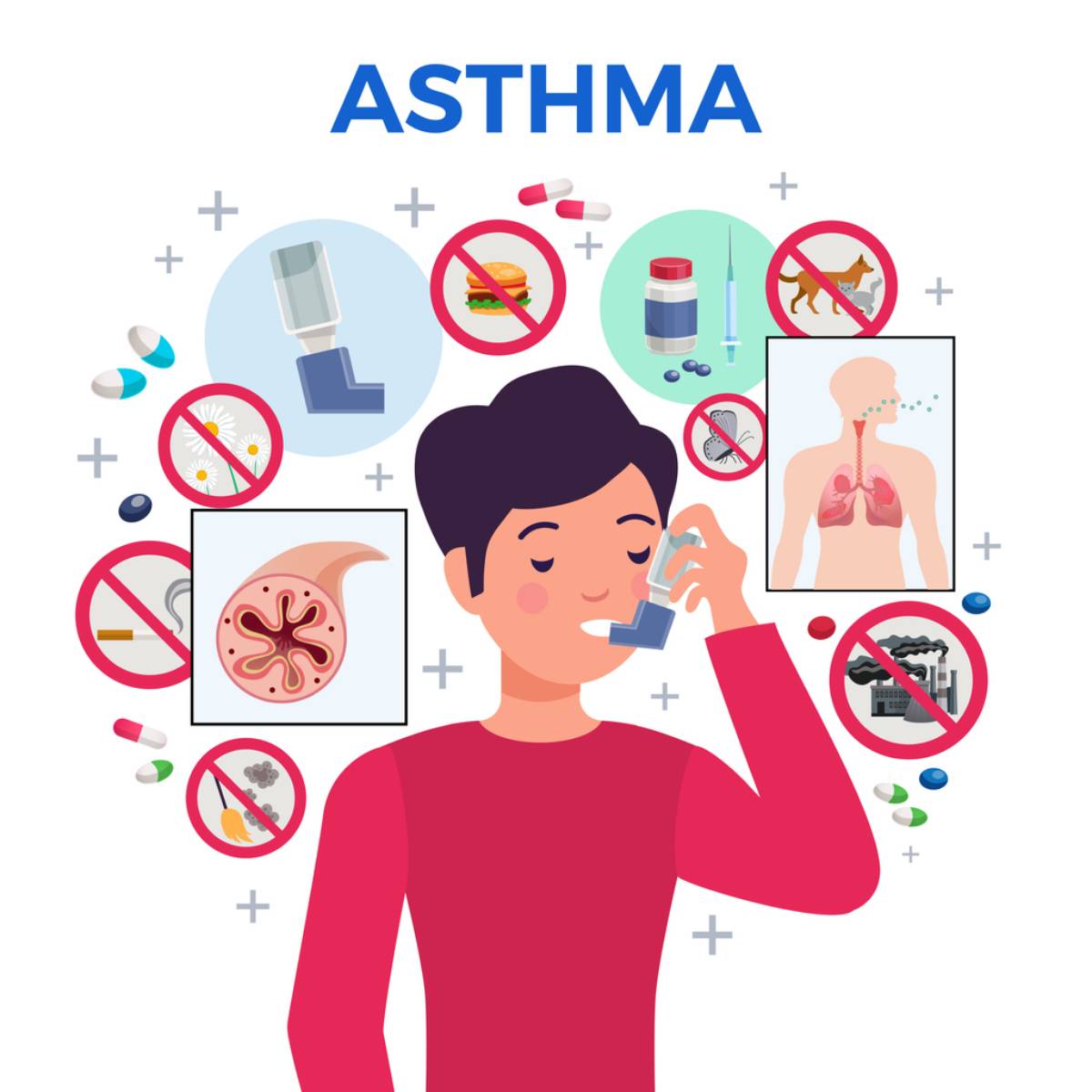Asthma is one of the most common chronic illnesses. In fact, roughly 25 million people live with the condition. Because asthma affects your lungs, it can come with uncomfortable symptoms. Some include breathlessness, chest tightness, coughing, and wheezing. These can be frightening and painful so it’s important to find a way to manage your symptoms. You may wonder, is controlling asthma possible? Below you will find helpful information about asthma and the available treatment options.
Is Controlling Asthma Possible?
Asthma is a chronic lifelong condition that can be effectively managed. Controlling your asthma symptoms involves an assessment and diagnosis from an asthma doctor in Manhattan. Even though the condition cannot be cured, it can be effectively managed. An asthma treatment plan can reduce and potentially prevent asthma attacks.
An effective asthma treatment depends on understanding your triggers and working with an asthma specialist in NYC. They can help you develop your personal plan when an attack comes on. Modern medicine has helped advance outcomes for asthma patients as the death rate has dramatically lowered over the last few decades. However, this is contingent on getting treated so you can have a plan of attack when your asthma flares up.
Asthma Symptoms
If you have not been diagnosed with asthma, it’s important to take note of your symptoms if you think you may have the condition. Common symptoms include wheezing, coughing, shortness of breath, and tightness, pain, or pressure in your chest. If you experience any of these symptoms, it is important to talk to a medical professional right away.
Asthma can be effectively managed with a treatment plan, but there are serious consequences of letting the condition go unchecked. Avoid putting off scheduling an appointment with a medical professional. Untreated asthma can impact your quality of life, ability to engage in your daily activities, and result in death.
Asthma Triggers
Many people with asthma have specific triggers that make their asthma flare up. Understanding these triggers is essential to managing your asthma. While you and your doctor can assess what you should avoid with your condition, take note of what you notice causes your asthma attacks. This can be helpful as you navigate your treatment plan.
Common triggers include intense physical activity, smoke, allergens, pests, intense emotions, outdoor pollution, chemicals and cleaning products, fragrances, pets, mold, weather changes and conditions, and some medications. Keeping a diary of your triggers can be helpful. Include the date, time, severity of your asthma attack, and what you think triggered it. Many patients find that this helps narrow down the issue so you can avoid it in the future. Bring this diary to your asthma doctor at each appointment so they can consider the information when assessing your treatment plan.
Asthma Treatment Plan
A skilled asthma doctor can diagnose and treat your asthma. If you think you have asthma, contact a medical professional right away. Treatment plans vary between patients so the plan will be customized based on your unique needs. The diagnostic appointment is fast and smooth. It involves a physical exam, a lung function test, and an examination of your symptoms. The doctor will also consider your medical history, the impact your geographic location, possible environmental factors, and whether the condition runs in your family.
Once you are diagnosed with asthma, there are multiple approaches to treatment. Some patients require daily medication, while others can use medical intervention when they notice a flare-up. The treatment plan depends on how mild or severe your asthma is. If you are concerned you have asthma, contact Dr. Shukla at the Asthma & Sleep Institute. He has helped countless patients manage their asthma and lead completely normal lives. Schedule an appointment today!

